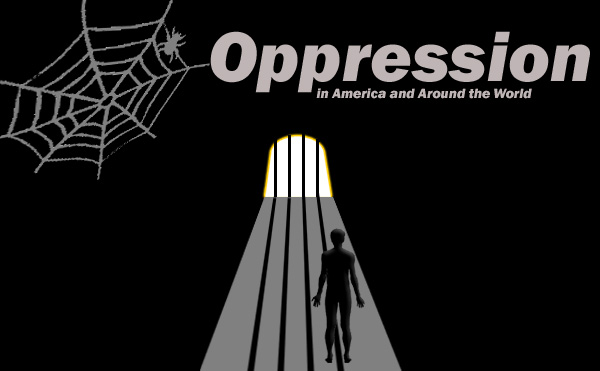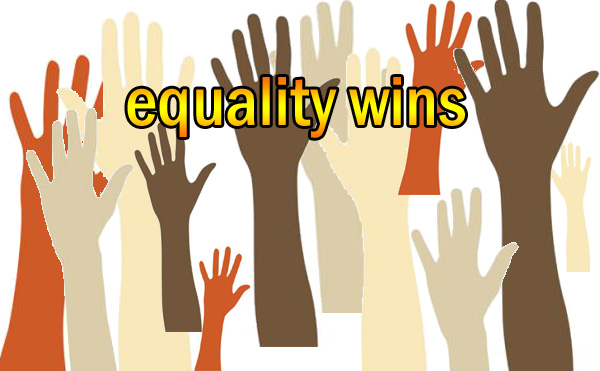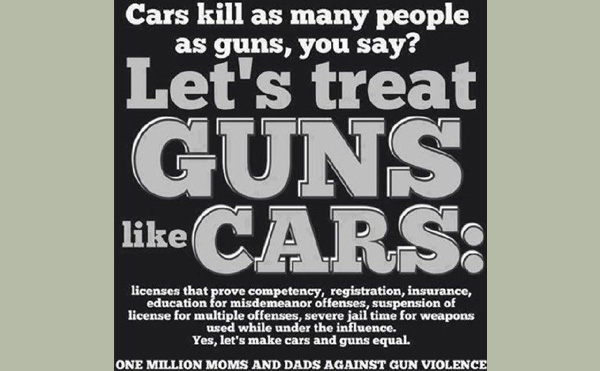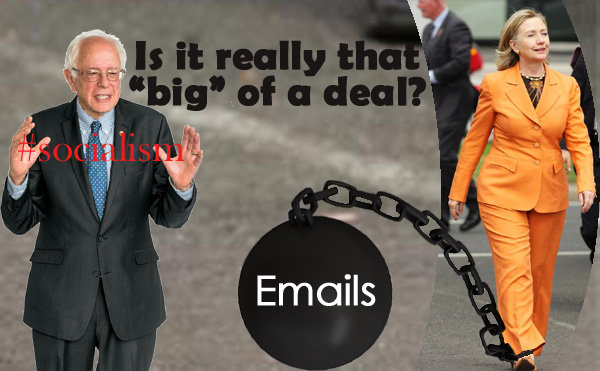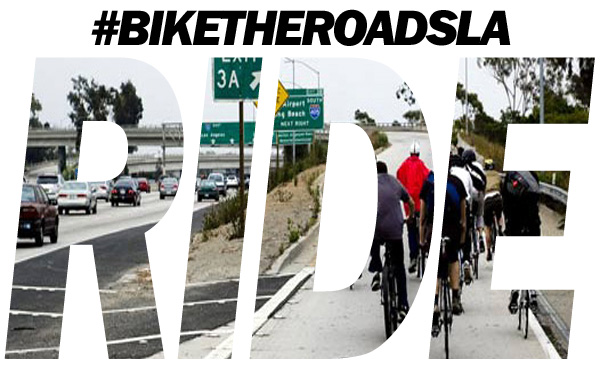Oppression in America and Around the World
September 10, 2015
An all too typical situation that confronts most of us in our lives: we get a new job. Great!! On your first day at the new job, you are presented with numerous documents to fill out (how much do you want withheld; how many dependents are you claiming; etc.) A recent California case provided guidance to employers (and by inference to employees) that compelling a new employee on their first day of work to sign an arbitration agreement for work-related disputes was illegal and the contract provision was overturned. The reasons for this development are numerous, but primarily due to the employee not being provided a copy of the company policy prior to being forced to sign the arbitration agreement. The employer told its employee that the policy would be provided in a “few weeks” and that if the arbitration agreement was not signed on the first day of employment, it would be deemed a rejection of the employment agreement and a refusal of the job offer. Can most of us turn down a job because of this? Probably not.
The court found that this situation created a contract of adhesion. This means the contract was offered on a take it or leave it basis and the parties are in an unequal bargaining position. The company with the arbitration agreement could seek judicial intervention, while the employee could not. Moreover, the employee would need to pay fees to use the arbitration process, while the company did not have to. Also, if a matter went to arbitration, the employee would have to have all claims contained in the one hearing and any other claims not mentioned in that one hearing would be waived. The company did not have this limitation. Because of the inequality of the bargaining, the court refused to rewrite the contract to comport with equality. The court found that this activity is not its function. Therefore, the lesson learned here is that if the employer wants to arbitrate disputes a measure of equality must be provided to the employee.
On the foreign policy front, should the US evolve and allow persons that would be deportable to stay here if they fear death because they are transgender? A federal appellate panel recently allowed three women to stay because they demonstrated that would be raped and killed by their own families and the Mexican police because they are transgender. The Federal panel chided the Obama Administration for not seeing the difference between gender identity and sexual orientation. The women qualify for relief under an international human rights treaty known as the Convention Against Torture. The court decision recognizes the difference between gender identity and sexual orientation. While Mexico has recognized gay marriage since 2009, the police and Army do little to enforce these laws. Should the US take the lead in this endeavor? Should people have the right to be free from death and/or torture if they are returned to their native country? What would Mr. Trump say in this situation? A knee jerk reaction to this issue is too simple and needs more extensive analysis.
Additionally, should the US offer its aid to help in the current Syrian immigrant situation? We cannot and should not sit by and let people be treated as animals and placed in camps or worse because they are fleeing the oppression of ISIS. The key questions presented are what type of aid should we send? How much will it cost? Is there an exit plan? Should we have the US have some of these people come here? Should we adhere to the Emma Lazarus’ poem on the Statute of Liberty (Give me your poor huddled masses, yearning to be free, etc.)?
What say you?
Should One Person’s Belief System Trump The Law?
September 10, 2015
Could the current controversy in Kentucky with court clerk Kim Davis being placed in jail and then freed because she refused to follow the law due to her Christian beliefs retard the law? Ms. Davis through her attorney has indicated that she will “follow her conscience” (whatever that means). How can this individual thumb her nose at society due to her own beliefs? If religion is a personal choice, why is she given the opportunity to frustrate the exercise of rights granted to people because she does not agree with it? It is hypocritical at best.
Ms. Davis as the standard bearer for her movement is hardly the poster child. She has been married multiple times (4) and has had children out of wedlock (6). How can you violate one of the fundamental principles of her religion (divorce) and then decide which principle she chooses to follow? Can she pick and choose which edicts to which she wants to adhere? Should she be given any credibility? Republican Presidential candidate Mike Huckabee was present at the rally when Davis was released. He is probably frustrated to some extent because his photo opportunity with the jailed Davis was taken away when she was freed. The lack of being able to see beyond their own doctrine has come across loud and clear both in print and in response to prior articles with the saying of “we will not yield”. Why not? No one is taking away Ms. Davis’ right to believe what she wants. However, if you are a public official (which she is) then she is obligated to follow the law.
A Muslim flight attendant has been suspended because he refuses to serve alcohol to passengers due to her religious beliefs. Another flight attendant complained about this practice. A reasonable accommodation to this is simple. Give her other duties and refrain from serving alcohol. At least she is consistent in her beliefs. Her beliefs can be exercised with little to no problems in the work place. The same cannot be said for Ms. Davis.
All Lives Matter
September 3, 2015
For the past year, a new advocacy group Black Lives Matter has come onto the scene and dramatically changed the conversation about criminal justice and the African-Americans experience with it. During the past year, Black Lives Matter has highlighted the harsh treatment that African-Americans are often subjected to by the police and how that has led to the deaths of many over the past years. Black Lives Matter has promoted the cases of Eric Garner in New York, Michael Brown in Ferguson, MO, Susan Bland in Waller County, Texas and Ezell Ford in Los Angeles. And yet when we see high-profile cases involving black suspects in the past week, Black Lives Matter has been silent.
Do only black lives matter or can the group admit that lives of people of other races are just as important to protect? Should the advocacy on behalf of an oppressed and discriminated against minority forget that other people in society deserve to be recognized and protected?
In the past week, America, as a community, has been rocked by two high-profile murders. The first happened on Wednesday, August 26th, 2015, when a disgruntled employee of a television news program decided to take out his vengeance on a news reporter, her cameraman and the person she was interviewing. And just this past Friday, a Houston Sheriff’s Deputy was shot 15 times by another suspect. The Harris County District Attorney has said that the suspect “unloaded the entire pistol into Deputy Gosforth.” In these high-profile cases, both of the suspects were African-American. And yet Black Lives Matter has said nothing about either case.
I am not and no one at LA Jewish Lawyer will claim that Black Lives Matter has any responsibility for causing these deaths, but don’t they, as all Americans, have a responsibility for condemning them. In recent weeks, we have seen several incidents from those in the Black Lives Matter movement or claiming to be part of the Black Lives Matter movement that has been disturbing. First, we have the threat to La Plata police by Carlos Anthony Hollins. We have also seen other threats against police by Black Lives Matter members or supporters. And yet, we have not seen anyone in Black Lives Matter criticize or denounce those making the threats.
We will not solve the problem of institutional racism and oppression against African-Americans, whether they are criminal suspects or not, if all that happens is that one group sets off a war against another. Black Lives Matter must come out against all violence and condemn in the strongest terms those both in and outside of its membership that advocate violence against the police or authority figures.
What say you?
Treat Guns Like Cars
September 3, 2015
It is not a new idea. It is idea that has even been spoken about this summer when Dr. Claire McCarthy proposed the idea again in the Huffington Post on June 2, 2015. The problem is that every time that idea is proposed gun enthusiasts and 2nd Amendment supporters says that the right to bear arms is different from the “privilege” of driving. Those opponents of gun safety are right in some ways but in a larger sense they are very wrong. While the right to bear arms is expressly written in the constitution and the right to drive a car is not, both rights are granted by the Constitution and both rights are able to be limited or restricted in order to protect public safety.
Many, if not all Americans, know that the Second Amendment to the Constitution says “A well-regulated militia, being necessary to the security of a free state, the right of the people to keep and bear arms, shall not be infringed.” For centuries, those who supported stricter regulations on the ownership and use of guns have looked to the first phrase “a well-regulated militia . . .” as grounds to support their advocacy of gun control. Gun control activists said that guns were not a private right held by an individual but a state right to ensure that the state would have a militia to protect against threats to the state from foreign states and from the federal government. Therefore, in the opinion of gun control advocates, the “right” can be reasonably restricted in order to protect public safety.
In 2008, the Supreme Court ruled in D.C. v. Heller that the 2nd Amendment did contain a private right and that the prefatory phrase “a well-regulated militia . . .” did not limit or expand the private individual right. According to the Supreme Court in Heller, a person has an individual and “fundamental” right to own a gun for whatever purpose s/he decides to own it. This decision was narrow in its scope in that in only invalidated one law in D.C. Moreover, the Court stated unequivocally in the decision that regulations on gun use and ownership will continue and that those regulations can still be constitutional if they do not violate the fundamental right to keep and bear arms.
A fundamental right has a specific meaning when discussing constitutional interpretation. When the Supreme Court describes a right as a fundamental right, they are saying that the right has great importance to the functioning of our constitutional democracy. The Court has held that these rights can only be restricted if there is a compelling government purpose, the governmental action is narrowly tailored and the government uses the least restrictive means possible to achieve its goals. Fundamental rights that the Court has recognized include the right to vote, the right to marriage and the right to interstate travel.
Second Amendment supporters have taken the Court’s decision in Heller and in McDonald v. Chicago to mean that almost any restriction on gun ownership or usage is a violation of their fundamental right. But those advocates do not recognize that fundamental rights can and must be restricted in order to protect the safety of the public. If that were not the case, then how can we accept and justify how the right to travel has been restricted and diminished by federal, state and local regulations governing car ownership and usage.
The right to travel, as mentioned above, is a fundamental right. That right was ruled by the Supreme Court to be fundamental well over a century before the Court even considered the right to bear arms. In 1868, the Court ruled in Crandall v. Nevada that a state cannot tax individuals for leaving the state because it restricted the fundamental right to interstate travel. This right has been recognized time and again by the Supreme Court as one of the most vital and fundamental rights that exists in our republic. Yet, despite the impact on the ability to travel for millions of the citizens of this country, no court has ever overturned automobile restrictions because they violated that person’s fundamental right to travel.
It does not require one to be a legal expert to see how regulations on the ownership of cars and licensing requirements to drive one restrict one’s ability to travel. If anyone can drive a car regardless of whether they are licensed to drive, then an unlicensed person’s ability to travel is greatly improved. Nor does the argument that driving is not a right, but a privilege hold any water when one sees that restricting a person’s driving has a dramatic impact on that person’s ability to travel. Just like for regulations on guns or marriage, regulations on cars have a great effect on a fundamental right and can only be justified if that restriction is the least restrictive means to achieve a compelling government purpose.
What is compelling enough to require government intervention is where we should begin and end this discussion. Gun rights advocates insistence that the right to keep and bear arms exists can be taken as a given, but they never consider nor are willing to discuss whether the regulations proposed have a compelling purpose. They say that the 2nd Amendment describes a right that cannot or should not be restricted. Well to those that say that, I say that the Constitution also contains a right to drive a car in order to allow freedom of movement and that right can and is restricted in order to protect public safety.
Therefore, we, as a society, should be able to do no more and no less to restrict gun ownership and use to protect public safety.
What say you?
Do Lawyers Work on Contingency in Los Angeles ?
August 27, 2015
Many plaintiff attorneys take on cases on a contingency basis. What this means is that the attorney will not get paid a fee unless the client wins the case either by settlement or verdict. A typical case on this basis is a car accident. Many injured people do not have the financial resources to litigate a case against the responsible party. They do not have the financial power to go to doctors, retain other experts and pay filing fees. Attorneys assess the merits of a car accident and may decide to represent the injured party on a contingency. The attorney (if the claim goes into litigation) will front the costs of the litigation (filing fees, service of process fees, expert costs, etc). When the case resolves, the client will be responsible for the fees to the attorney and to reimburse the attorney for the costs that had been fronted by the attorney. Depending upon the complexity of the case, this could run into thousands of dollars.
Doctors in personal injury cases also take cases on a lien basis. What this means is that the doctor will treat the patient and wait for payment of his/her fees until the case resolves. This is of crucial importance if the client does not have independent means to pay for their medical treatment, or do not have health insurance. Another advantage of the use of medical liens for personal injury cases is that attorneys are sometimes able to negotiate down medical costs after settlement or verdict.
In cases where the medical expenses approach and/or are equal to or greater than the settlement or jury award, an attorney has the option of negotiating with the medical providers to lower the costs. This is how it works. For example, let us say that a Plaintiff was injured in a car accident where she was sideswiped. The Plaintiff has had to go to the hospital on a couple of occasions and has had to see a specialist that performed surgery on her. Therefore, she had extensive medical bills which ended up costing her around $30,000. Her attorney, in order to ensure that she gets some compensation, is able to negotiate a settlement with the Defendant who will have to pay $25,000. If the doctors treating Plaintiff were not working on a lien system, then the Plaintiff and the lawyer would get no compensation and the Plaintiff would have to pay another $5000 in medical bills. In a lien-based system, the Plaintiff’s attorney can negotiate with the doctors to get them to reduce their medical bills based on the size of the award, in this case $25,000. The Plaintiff’s lawyer should be able to negotiate so that the Plaintiff does not have to pay her medical bills out of pocket and will still get some compensation for her injury.
Outside of the personal injury field, attorneys rarely take cases on a contingency basis, yet almost all attorneys that practice personal injury law will take on contingency cases.
Are you looking for a lawyer to work on contingency basis for your case? Call or email LA Jewish Lawyer Now and will gladly spend a free hour of consultation with you to see how we can help you. 855-977-1212 or email below……
Should Religious Doctrine Override the Law?
August 25, 2015
A recent California case provides a real dichotomy in logic vs doctrine. A mother and her husband agree that after the birth of their second child, they did not want any more children. The mother is to give birth in a Catholic Hospital and the Hospital will not perform a tubal ligation which would prevent future pregnancies because it violates church doctrine. If this is allowed to stand, the mother will have to drive 150 miles to another hospital to have this procedure. Is this right? Which of the competing interests is number one here? Is it the patient and her husband’s rights? Is it the church because it is their hospital? Is it the insurance company who is paying or may pay the medical procedure? Should patients/families have the right to get health care without having to worry about religion at the health care facility?
On a related note, a court clerk in Kentucky will not perform same sex marriages because this would offend her religious beliefs and would cause a “searing” injury to her beliefs. How can the simple ministerial task of issuing a license have this type of effect on a person? If it does have this effect, can’t the clerk just pass this task onto someone in the office who would not suffer from this “injury”? Can clerks dictate policy when the Supreme Court has already sanctioned same sex marriages? Will the city, county or state be sued if they condone this action by one of their employees? Should the employee suffer personal liability and free the government from responsibility? Is not the exercise of religion a personal one that should be conducted personally and should not interfere with the exercise of others legal rights?
What say you?
The Curtain Opens on Trump Policies: Do We Want This?
August 17, 2015
The Republican front runner Donald Trump has revealed polices on two issues which are “hot button” potential problems for a future commander in chief. The first is that he wants to send US troops back to Iraq and “take over” the oil in that country. This is simply amazing! What does he mean “take over”? Does he mean that the United States assumes ownership of the oil at the expense of the Iraqi people? Does he mean that the US is unaccountable to anyone on this issue? Does he mean that we need to send US troops back to the region to accomplish this goal? Does he mean that he wants the US to basically colonize Iraq for the benefit of the US? Is this a precursor of having US troops fight ISIS on the ground not only in Iraq, but in the entire Middle East region?
On Immigration, Trump wants Mexico to pay for a wall to safeguard US borders. He now has somewhat modified his position by stating that he would raise visa fees and criminalize and prosecute those who overstay their visas. Is this a policy that the country wants? Where is the money coming from to pay for this? Visa fees will alone not pay for this policy? Do we commit US troops at the border? Do we subcontract this to private companies? Will immigrants be denied due process in US courts when these policies are being enforced? Will the “increased fees” become de facto turning away Mexican people from coming into the US?
Trump also admitted that he gets ideas for policy from watching the various television shows on the issues of the day. Do we want a president getting policy ideas from the media? Should issues come from the president and be evaluated by the people and the media? What is the quality of advisors that Trump has?
The American people deserve the specifics of what a Trump candidacy is going to look like. The key question is: do we like what we now see?
What say you?
What Do Angelenos Want: Bike Lanes or Traffic Lanes?
August 13, 2015
The Los Angeles City Council has changed the Southern California lifestyle and experience by changing streets to create more bike lanes. It has been argued that this would make the roads safer for bicyclists and pedestrians, increase bus lanes and attempt to get us out of our cars. The key question is: Do we want to do this?
As Will Rogers once said about buying real estate, “there is only so much there.” This is the same a rationale. Our existing streets cannot (for the most part) be modified to carry more vehicular traffic. They can be modified to carry less by the use of these lanes. However, do motorists want to have increased traffic in decreased lanes?
The City has a “legacy of shame” by not acting more aggressively to decrease traffic fatalities involving children and senior citizens. Once again, do we want to give up our cars? Do we want to worry about this when the city goal to accomplish this is over a 20 year period? The goal of “Mobility Plan 2035” is to decrease speed of traffic. Supporters cite that only 5% of pedestrians/cyclists in accidents with cars going 20 miles per hour die, while 80% of people involved in the same accidents with cars going 40 miles per hour die. Do we have the problem raised in urban planning of NIMBY (not in my back yard)? Do we want to slow ourselves down or lose parking spaces? The City council voted 12-2 to proceed with this plan. Is this a good use of city resources?
Experts say that reducing all types of crashes is possible if the city is willing to radically change streets by adding medians, widening sidewalks and putting in dedicated bus and bike lanes. The question is do motorists want this? Do businesses want this? Government claims that by enacting this measure and forcing people to use alternate means (bike, public transportation) the number miles driven will decrease. Once again, do motorists want this?
What say you?”

